October 2016

Ramana Maharshi (30 December 1879 – 14 April 1950) was an Indian sage. Born Venkataraman Iyer, he left home in 1896 at the age of 16 and landed at Thiruvannamalai. After years of deep tapas, he attained a state of jivanmukti (release from the bindings of the cycle of karma even when alive). An open-minded yet devout person, Ramana primarily focused on Self-inquiry as a means to exhaust ignorance and become one with the atman. Although he mostly...
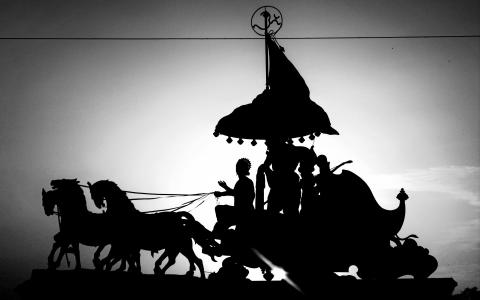
किमस्थिमालां किमु कौस्तुभं वा परिष्क्रियायां बहुमन्यसे त्वम् । किं कालकूटः किमु वा यशोदा- स्तन्यं तव स्वादु वद प्रभो मे ॥
Among the poets who flourished in Andhra Pradesh during the thirteenth century, kavibrahma Tikkana Somayaji is perhaps the most famous. Not only was he a great poet in Telugu, he was also a great scholar of Sanskrit. He composed the Telugu version of the Mahabharata. Unfortunately, he could not complete the work; he only...

After a very well spent morning at Sanchi and being fully satisfied, we drove to Vidisha. Lunch was foremost on the agenda. After enquiring with locals, we were directed to a ‘Jain bhojanalay’, a nondescript, unassuming luncheonette on the first floor of a dirty drab building close to the railway station. We had made our way there through the not-so-healthy ‘Hospital road’. But the food was a refreshing contrast. The ambience was forgotten in...
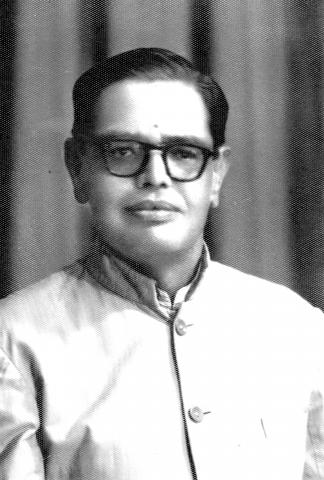
A rare interview of Dr S. Srikantha Shastri, a historian par excellence. His magnum opus "Bharatiya Samskruti", a monograph in Kannada, is a must-read for all serious students of Indian culture.

As a remarkable patriot, thinker, and visionary, Sri Aurobindo’s contributions to India are priceless. Unlike other patriots and leaders of his generation, it was in spite of his upbringing that Sri Aurobindo turned out to be such a devoted son to Mother India.
Enamored by the British, Aurobindo’s father Dr. Krishna Dhun Ghose did everything within his power to make his children grow up to be Englishmen. His dream was for his children to enter...

स्मरगरलखण्डनं मम शिरसि मंडनंदेहि पदपल्लवमुदारम् ।ज्वलति मयि दारुणो मदनकदनारुणोहरतु तदुपाहितविकारम् ॥
Jayadeva is a Sanskrit poet who has attained immortal reputation through a single work. He lived in the twelfth century and was the court-poet of Lakshmanasena. His Gitagovindam finds no parallel in world literature. Innumerable poets have tried in vain to imitate his work. The amazing fact about Jayadeva is that mellifluous words seem to be in a...
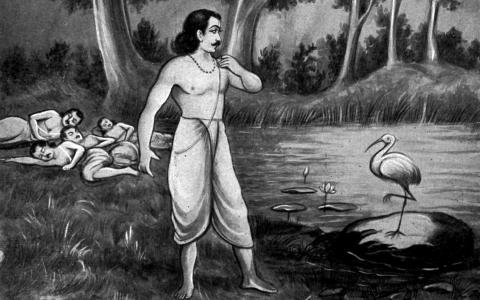
In their years of exile, the Pandavas lived in the picturesque Dvaitavana abounding in beautiful trees and delicious fruits. One day, a deer carried away – between its antlers – the fire-producing sticks of a poor priest who was performing an important yajña. The priest came to the Pandavas seeking help. The five brothers took up their arms and went looking for the deer. Even after exhausting all their knowledge in hunting and combat, they were...
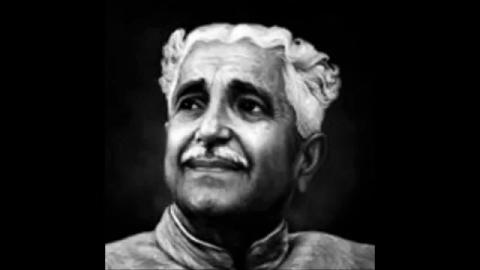
A short documentary of Kuppalli Venkatappa Puttappa, the inimitable poet. He is popularly known as 'kuvempu'. His epic-poem Ramayana Darshanam was awarded the Jnaanapeeth award.
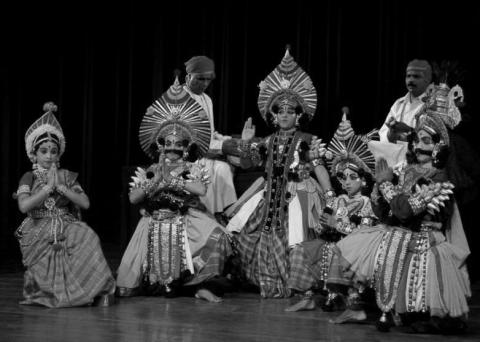
Let us look at Yakshagana and its allied art-forms from the point of view of angikaabhinaya (communication through the body and gesture language). Kuchupudi and Bhagavatamela are rich in angikaabhinaya. However, in recent times, Kuchupudi has been relinquishing its theatrical format, i.e., the format of Yakshagana and Kalaapa, and is heading towards becoming a dance (nrtya) format. Although, this is a positive development in one sense, for it...
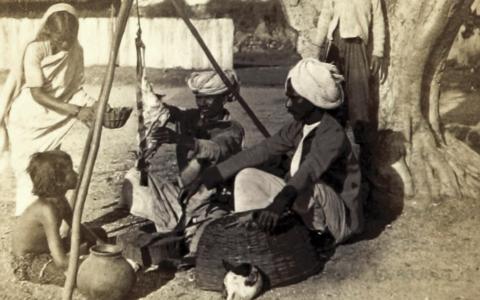
In the Vana Parva (Book 3) of the Mahabharata, during the course of Yudhistira’s discussion with sage Markandeya, the latter narrates the story of Kaushika and Dharmavyadha. It is a wonderful episode of how a learned ascetic obtains life-lessons from an unlettered butcher in Mithila.
Following a series of incidents, Kaushika lands up at the shop of Dharmavyadha, who is busy selling deer and buffalo meat. Seeing the ascetic, Dharmavyadha rises...
